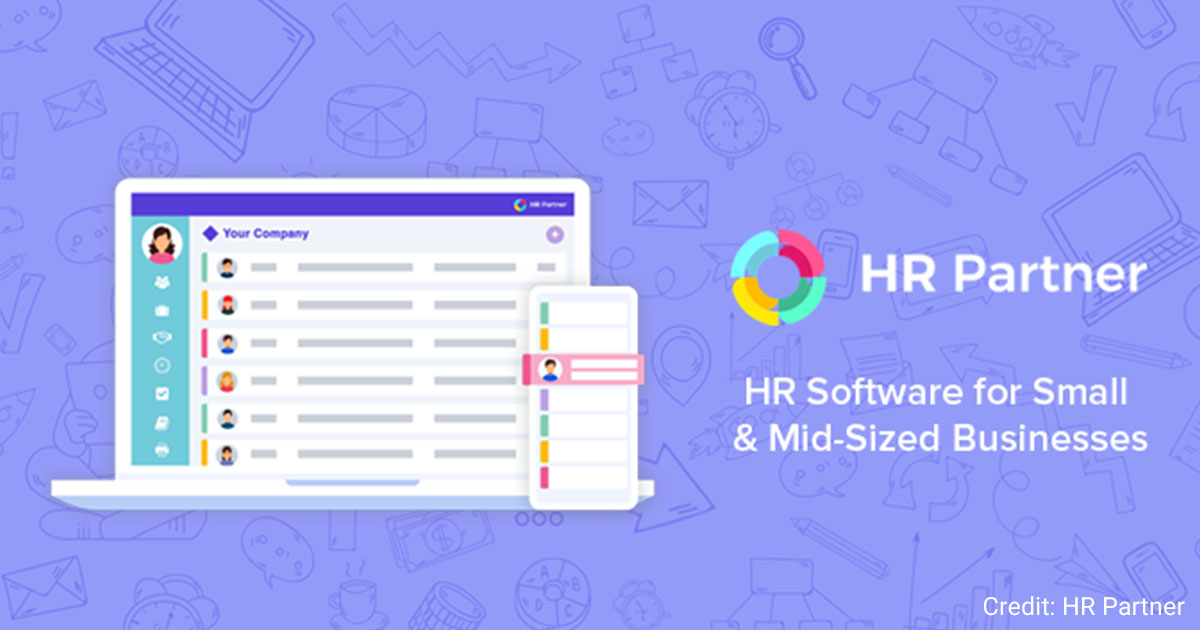HR Partner Wants to Ease the HR Burden for Smaller Companies

Last Updated: By TRUiC Team
Devan Sabaratnam, creator and co-founder of HR Partner, has a passion for helping small businesses with human resources management. During the 25+ years he spent running his previous company – a consulting business that installed accounting and payroll systems for hundreds of small to medium-sized firms – his clients frequently told him they were struggling with HR. “I heard the same complaints repeatedly from business owners about how difficult it was to manage all aspects of their employee data, and remembering when to renew critical documents or qualifications, or plan career pathways for their staff,” he says.
Devan decided to come up with an HR software solution that would better meet the needs of small business owners by fixing the shortcomings of existing platforms. In particular, they were too complicated, especially for small firms whose staff may not have as much HR experience or training as their counterparts at larger companies. “Simplicity of design was forefront in my mind, coupled with flexible features that wouldn’t limit what it could do,” he says. “That was an interesting exercise, to try and hide all that functionality under a fairly simple interface, but I think we achieved it, and we get constant feedback about how easy our system is to use.”
A Profitable Niche in a Crowded Market
Today, HR Partner has found its market niche: small to medium-sized businesses that need an easy HR solution that anyone can use. “Our main mission is to create an HR platform that is useful for small to medium businesses to better manage their workforce,” Devan says. “My experience in the industry is that a lot of smaller companies wait until it is almost too late to put in place a better methodology for looking after their staff, so our aim is to make that adoption of their first HR solution as easy and painless as possible.” Although a few larger companies use the platform, companies with about 50 to 300 employees are HR Partner’s “sweet spot,” he says. “We think we are a best fit for those growing companies who are finding they need to implement their first HR system after struggling with a manual system for years.”
In HR software, HR Partner chose to enter a thriving industry. According to Grand View Research, the global HR software market is expected to exceed $22 billion by 2022. A number of factors are driving the market, especially companies’ increasing adoption of cloud technologies like Software as a Service. SaaS provides several benefits for HR managers, including the ability to access employee documents anywhere with an internet connection. Cloud-based HR software also can provide customized data solutions for a company’s workforce. Plus, it’s updated automatically so that users don’t have to periodically check for and install updates themselves, as they do with software that’s installed on machines in the office.
HR Partner is completely self-funded, which has presented some challenges. “Because we haven’t got a big pot of money to go out and recruit in bulk, we have to wait until the cashflow can sustain an additional wage before we go looking for the next hire,” Devan says. “This can be frustrating sometimes, because we tend to get a little overstretched for longer than we would like.” On the plus side, he says that self-funding has allowed the company to take the time it needs to hire the right people. While that process has sometimes taken longer than he would like, Devan hopes to soon begin hiring “just in time” to better manage the company’s workload while not lowering its standards.
Happy Customers and Word-of-Mouth Marketing
When it comes to marketing, HR Partner finds that online review sites like Capterra and G2 Crowd provide the biggest boost. “Businesses tend to use these sites to compare products and read reviews, and we are really fortunate to have a raving customer base who regularly post great reviews for us on those places,” Devan says. Plus, existing customers who change jobs often recommend that their new employers use HR Partner. The company also runs informational webinars and publishes blog posts on HR-related topics. These efforts “help build trust with people who may not be familiar with our brand,” he says. “Most of our marketing is ‘playing the long game’ as we have quite a long sales cycle in this industry, so we have to have the patience to slowly lead the customer towards buying our software, rather than any short-term tactic of high pressure selling.”
In the end, a successful marketing campaign requires keeping customers happy – a concept that HR Partners is “somewhat fanatical” about. “I think it all comes back to our core premise of providing the best possible service to our customers,” Devan says. “Customers feel respected and cared for, and it shows when they recommend us to their peers.”
Even so, it hasn’t always been smooth sailing for HR Partner as Devan and his colleagues have labored to establish the company as an industry player. In particular, he said his initial “scattergun approach,” in which he tried to market his company’s products to companies of all sizes, didn’t work out well. “I wish I had done a little more market research on our ideal customer base and competitors before we launched ahead,” he says. ”It was only after a lot of trial and failure that I began to realise that we should really focus on a niche customer size and not try to be a solution for everyone.”
HR Partner has continually refined its products as well. Although he had noticed that many of his competitors focused on one particular area of HR, initially, “I thought that by offering everything, it would make us more attractive than them,” he says. “Now I realise that having better/deeper functionality of just a few key features sells much better than an overly broad set of features with limited functionality.” As a result, the company focuses on incremental improvements to its existing features – such as making the software work better overall or adding configuration options – instead of regularly adding entirely new capabilities.
Choosing Your Partners
For aspiring entrepreneurs in the HR software industry, Devan as a word of advice: Choose your business partners and employees carefully.
“Be really selective and careful with who you pick to work with,” he says. “I have made mistakes in the past in choosing to work with people who were flaky or non trustworthy and it has caused me a lot of pain.” It’s especially important to hire people “with good, strong character and empathy and resilience” who will stick around when the going gets tough – which it inevitably will.
In looking to the future, Devan believes that HR Partner’s singular focus on customer service will help it compete in an HR software market crowded with larger, venture-backed companies.
“We have found more and more people tend to like our more personalised approach to customer care, and appreciate that we listen to our customers and make changes to our system accordingly,” he says. “We’d like to stay bootstrapped as long as possible, but that doesn’t mean we won’t say ‘No’ to venture capital or angel investment at some point in the future. It is important to keep an open mind, and to be able to recognise a good opportunity when it comes along, as well as avoiding any opportunity that takes us away from our core mission.”
Next Steps:
- Check out the top insights from HR Partner and how you can support them!
- Keep up with more startup companies by following Startup Savant on Google News!
- Start your own startup by reading our guide on how to start a startup.
Tell Us Your Startup Story
Are you a startup founder and want to share your entrepreneurial journey withh our readers? Click below to contact us today!


